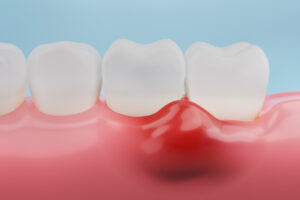 Choosing to ignore swollen gums could mean big trouble for your oral and systemic health. Gingival inflammation can indicate the presence of gum disease, also referred to as periodontal disease. At our dental office in Livonia, MI, we monitor subtle changes in your gum tissues to keep you at your best. In this blog, we discuss the presence of gingival inflammation, how it can serve as a warning sign of gum disease, and the available treatment options to effectively manage it.
Choosing to ignore swollen gums could mean big trouble for your oral and systemic health. Gingival inflammation can indicate the presence of gum disease, also referred to as periodontal disease. At our dental office in Livonia, MI, we monitor subtle changes in your gum tissues to keep you at your best. In this blog, we discuss the presence of gingival inflammation, how it can serve as a warning sign of gum disease, and the available treatment options to effectively manage it.
Oral Hygiene and Life-Style Factors
Neglecting oral hygiene or following an inconsistent flossing routine can damage your oral health. When bacteria and plaque are allowed to accumulate, they cause irritation and inflammation of the gums. The undisturbed plaque will then become tartar which provides an ideal home for bacteria to thrive.
Systemic Causes of Inflammation
There are also systemic issues not linked to oral hygiene that can cause gingival edema. Hormonal fluctuations during pregnancy, menstruation, or menopause can increase gum sensitivity, making them more prone to inflammation. Also, a lack of essential nutrients, particularly vitamin C, can weaken the immune system, making the gums susceptible to infection. Not to mention, certain medical conditions, such as diabetes and autoimmune disorders, can affect gum health and contribute to gum disease. It is important to note that there are other causes of inflammation, so we always conduct a thorough medical history review to be sure we understand your risk factors.
Periodontal Disease
Swelling of the gums is normally an early sign of gum disease, commonly referred to as periodontal disease. It is important to recognize the warning signs since a lack of treatment can lead to serious oral health issues. Symptoms include red, swollen, or bleeding gums, exposed tooth roots, chronic bad breath, loose or shifting teeth, and gum sensitivity.
Treatment and Prevention of Periodontal Disease
Managing and preventing gum disease requires a team approach and our team has the tools to restore your health. If the disease has progressed far enough, scaling and root planing, also known as deep cleaning is vital. With this procedure, plaque, tartar, and bacteria are removed from below the gum line and roots of the teeth allowing the tissues to heal. Sometimes, antibiotics or special mouth rinses are prescribed to control bacteria and speed up healing. In advanced cases, surgical procedures such as gum grafting or flap surgery may be necessary to repair damaged tissues and promote gum healing.
Schedule A Dental Check-Up Today
Maintaining a proper oral hygiene routine is essential in preventing and managing gum disease. At your dental visit, our experts will give you the tips and products necessary for your unique situation. Take the first step towards maintaining optimal gum health and call our office in Livonia, MI at (734) 425-4400!


